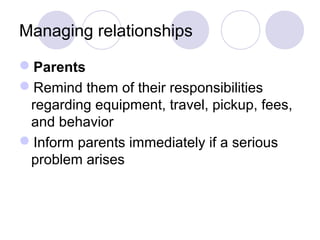This document discusses various topics related to coaching theory and sports coaching. It covers three major objectives of coaching which are having a winning team, helping athletes have fun, and helping with athlete development. It also discusses coaching styles, keys to successful coaching, communication skills, using rewards and dealing with misbehavior, teaching skills, and managing relationships. Throughout it provides examples and details for effectively coaching young athletes.


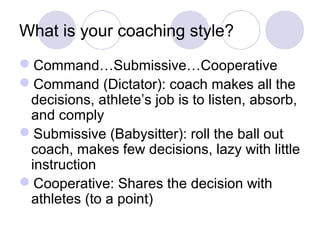













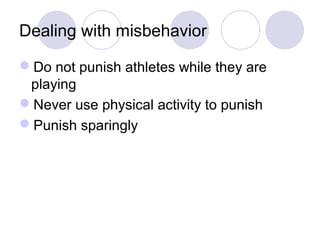


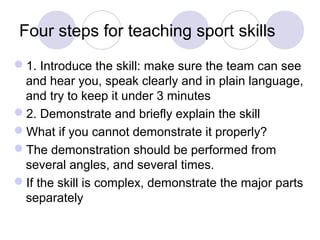
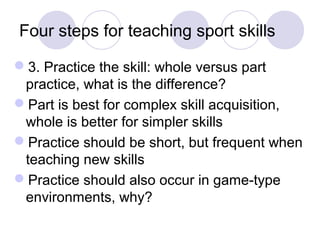





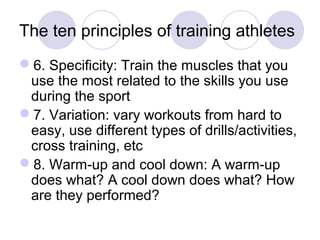
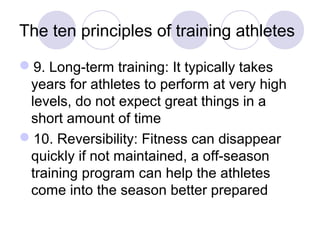


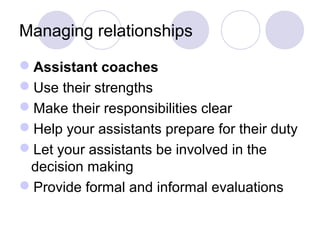


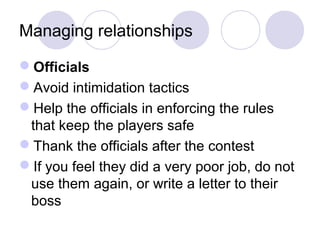
![Managing relationships
Parents
They are ultimately responsible for their
children, so if they insist their child does or
does not do something (not a request like,
put him at quarterback [even though he
does not have thumbs]) you should grant
their wish
Keep them informed of practices and
games](https://image.slidesharecdn.com/201403111303481-141111121015-conversion-gate02/85/coaching-theory-35-320.jpg)
